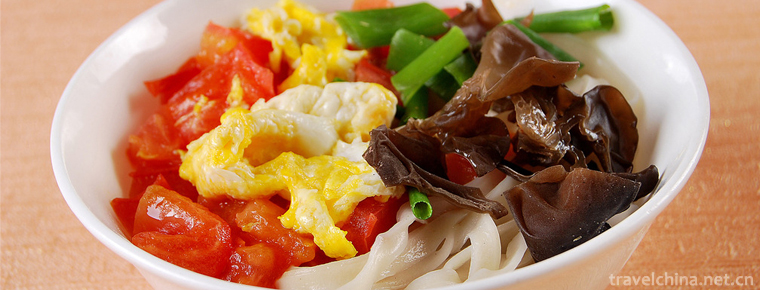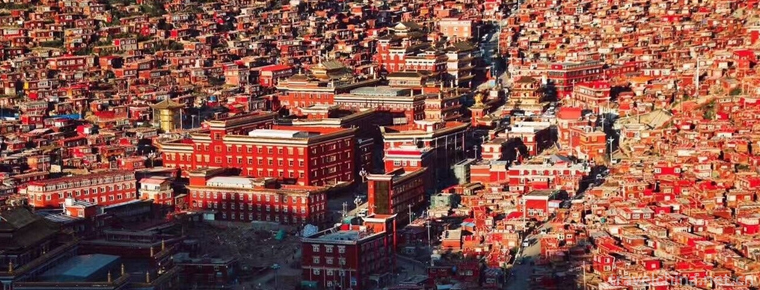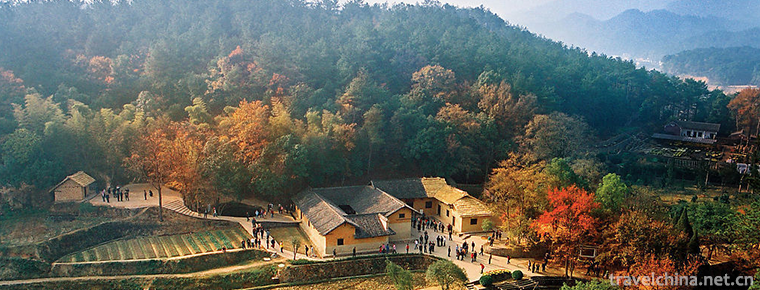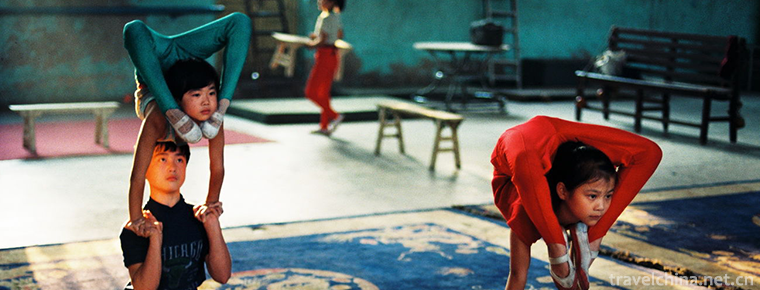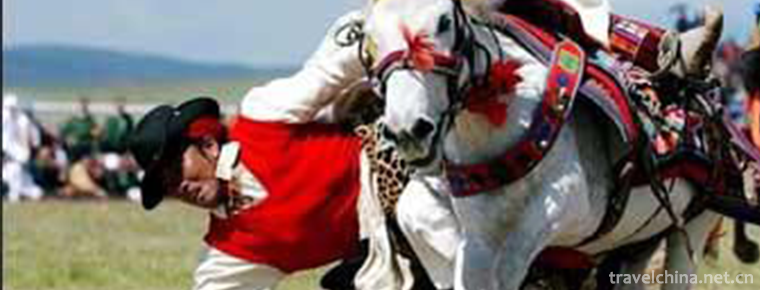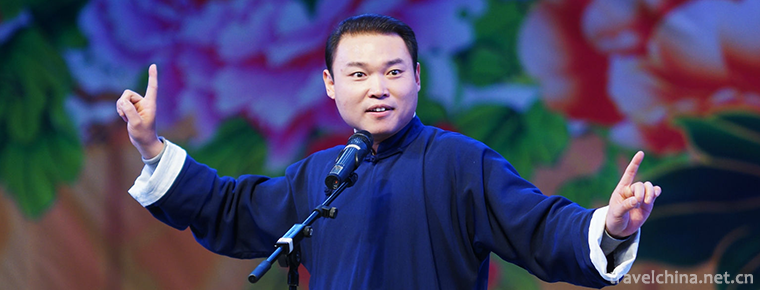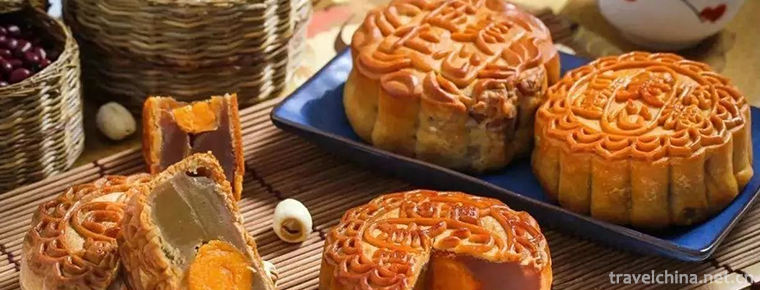Dong Zhongshu
Dong Zhongshu
Dong Zhongshu (179 BC - 104 years ago), Guang Chuan (Hebei Jingxian County southwest, Jingxian County, Gucheng, Zaoqiang three counties junction) people, the Western Han Dynasty. philosopher emperor jing of han When he was a doctor, he taught "RAM spring and Autumn". Martial Emperor In the first year of Yuan Guang (the first 134), Emperor Dong Zhongshu of the Han Dynasty sought the strategy of administering the country. To raise virtuous and good countermeasures Combining Confucianism with the needs of the society at that time, it absorbed the theories of other schools, and created a new ideological system with Confucianism as its core. Heaven and man induction "," Great unification Theory and "not in six arts", Confucius All those who are in charge of their work must have their own way, and should not be allowed to march in and out of the hundred schools. Confucianism It has been more than two thousand years since it became the orthodox ideology of Chinese society. Its learning centered on Confucian patriarchal thoughts. Yin Yang and five elements theory The divine right, monarchical power, patriarchal power and husband's power are combined to form a theological system of monarchy.
He proposed. Heaven and man induction , The three cardinal guides and the five constant virtues as specified in the feudal ethical code And other important Confucian theories. After that, Dong Zhongshu served as the 10 year of Jiangdu Yi Wang and Liu Fei. Yuan Shuo four years (the first 125), Ren Jiao Xi Wang Liu Duanguoxiang, resigned 4 years later and wrote books. Since then, when the Court deliberated on every major event, the emperor ordered the envoys and Ting Wei to ask his advice to Tung Jia, indicating that Dong Zhongshu was still respected by Emperor Han Wu.
Dong Zhongshu spent four dynasties in his life. Western Han Dynasty During the heyday of the dynasty, the dynasty died in 104 BC and was about 75 years old. After death, Emperor Wu was blessed and was buried in Changan. Lower Maling
Paul Mauriat's History
Martial Emperor In the first year of Yuan Guang (before 134 AD), Dong Zhongshu was the 10 year of Jiangdu Yi Wang and Liu Fei, and Yuan Shuo was four years ago (125 AD). Jiao Xi Wang Liu Du Guo
In four years, he resigned and went home.
Since then, the book has been written at home, and the court has great arguments for messengers. a military rank It is still respected by Han Wudi when asked about his family. Dong Zhongshu took the religion of Zhou Dai as the basis of "the spring and autumn of rams". View of heaven and Yin-Yang , Five elements theory Combine and absorb Legalist School , Taoist school , Yin Yang family The thought established a new ideological system, became the official ruling philosophy of the Han Dynasty, and gave a more systematic answer to a series of philosophical, political, social and historical questions raised by the society at that time.
In 134 BC, Martial Emperor The imperial edict asked for the strategy of governing the country. Dong Zhongshu, a famous scholar, is famous for his works. To raise virtuous and good countermeasures "Systematically" Heaven and man induction "And" unification "theory and the idea of" banning hundred schools and commending six classics ". Dong Zhongshu believed that "the great cause of the Tao is out of heaven". Both nature and personnel are subject to destiny. Therefore, the political order and political thought that reflect the destiny should be unified. Dong Zhongshu's Confucian thought greatly safeguarded the totalitarian rule of Emperor Wu of Han Dynasty and made a temporary contribution to the stability of social politics and economy at that time.
Eager to learn
Dong Zhongshu's old home, Hirokawa O, is in the village of Gu Zhuang. Hengshui Southeast Qilu North Yan Zhao Western boundary San Jin Emperor Wen of Han In the first year of the first year (179 years ago), Dong Zhongshu was born in a large landlord family with large collection of books.
Teaching Confucianism
At the age of 30, Dong Zhongshu began to recruit a large number of students and teach them carefully. He lectures and hangs a pair in class. Curtain He said in the curtain that the students were listening outside the curtain. At the same time, he often called his favorite student. Lu Bu Shu Equal phase transfer.
In this way, many people have studied with him for many years, and have not even met him. By giving lectures, Dong Zhongshu trained a number of talents for the Han Dynasty. Vassal King The state of the country has been established. superiors Because Dong Zhongshu widely recruited students, publicized Confucian Classics His reputation is also growing. emperor jing of han When he became a doctor, he took charge of Confucian classics teaching.
emperor jing of han I am a doctor. He once walked out of his house and set up a professor of the altar. The lecture was very wonderful. His disciples were many, his disciples were teaching their disciples again, some of whom had been passed on to disciples, and even heard of his name, but he never saw his face. He was obsessed with teaching and research, and did not even go home for three years to see it. He behaved according to etiquette, and many readers respected him as a teacher. Martial Emperor After his successor, Dong Zhongshu became the state of Jiangdu. He ruled the country of Jiangdu, mainly guided by "RAM", by studying the causes of "natural calamity" and "running erroneous Yin and Yang", and then closing Yang Qi when releasing rain, releasing the Yin Qi and making it rain. When it stopped raining, it could close the Yin Qi and release Yang Qi and stop the rain. In Jiangdu, he never made mistakes in doing so. Later, he was abolished as a Chinese doctor. (Dong Zhongshu, Hirokawa Hito too. In order to cure Chunqiu, Dr. Xiao Jing is a doctor. After the curtain was recited, the disciples passed on for a long time, or could not see their faces. For three years, Dong Zhongshu did not look at the garden. The advance and retreat is not acceptable, but the bachelor's degree is respected. This is the accession to Jiangdu. It is wrong to push Yin and Yang with the change of spring and autumn. There is no need to desire one country. The middle and the disabled are Chinese doctors.
Three questions of heaven and man
After Emperor Han Wu took the throne, Dong Zhongshu was recommended to all over the world. Question and answer Martial Emperor For three consecutive questions and questions, Dong Zhongshu's basic content is the relationship between heaven and man. Three strategies of heaven and man ". For the first time, the emperor of Han Dynasty asked about the fundamental principle of consolidating the rule. The second question was that Wu Emperor mainly asked about the administration of the state, and the third question was mainly the response of heaven and man.
In the countermeasures, Dong Zhongshu elaborated on the interaction between heaven and man, discussed the relationship between theocracy and monarchical power, and put forward the proposal of "banning hundred schools and respecting Confucianism".
Exhorting Liu Fei
After Dong Zhongshu's strategy, he was sent by Emperor Wu. Yi king of Jiangdu Liu Fei is in the state. Liu Fei It is the brother of Emperor Wu, who is rude and unruly. He is a member of the martial arts, but because Dong Zhongshu was very famous at that time, he was a famous scholar in the whole country, so he had great respect for Dong Zhongshu. And Liu Fei compared Dong Zhongshu to assistant. Duke Huan of Qi Guan Zhong, who ruled the princes, hoped that Dong Zhongshu would assist himself like Guan Zhong and Qi Huan Gong to usurp the central government.
But Dong Zhongshu advocated " Unification of spring and Autumn Therefore, for Liu Fei's question, he exhorted the past and the present, and pointed out that "benevolent people" are "benevolent people who do not seek their benefits, but do not rush to their work". It is the highest state of benevolence to transform the social atmosphere by virtue of educating the masses. So Confucius's disciples, even children, are ashamed to mention the five masters, because the five chiefs are the first to cheat and then to do benevolence and righteousness. It's just a trick, so it's not enough to be mentioned by a truly moral person. " Suggesting that Liu Fei should not seek hegemony. Dong Zhongshu is Jiangdu In the past 6 years, Yi Wang has done a lot of activities such as praying for rain and waterlogging.
Dismissal Teaching
Emperor Wudi built 6 yuan (135 years ago), where the emperor worshipped his ancestors. Changling A fire broke out in the high garden hall and the high temple in Liaodong. Dong Zhongshu thought it was a good opportunity to publicize the reaction of heaven and man. So he insisted on drafting a memorial to the disease. He explained to the two fire that God had been angry with Emperor Wu of the Han Dynasty. As a result, the memorial is not yet on. Zhu Fu Yan Visiting Dong Zhongshu's house, he saw the memorial, and was jealous of Dong Zhongshu's talent. He stole the manuscript and handed it to Emperor Wu. Emperor Wu looked furious and decided to behead Dong Zhongshu. After he had pity on him, he was granted forgiveness, but the king of Jiangdu was dismissed. Since then, Dong Zhongshu did not dare to talk about calamity. Instead, he had been an old teacher, engaged in teaching activities and taught for ten years.
Stage a comeback
Four years (125 years ago) of emperor Wuxu of Han Dynasty Gong Sun Hong Dong Zhongshu is also recommended to be the king of Liu Duan. Liu Duan was also the elder brother of Emperor Wu of the Han Dynasty. He was more fierce and overbearing than Liu Fei. In the past, many people who had done his country were killed or poisoned. Because Dong Zhongshu is a famous scholar, Liu Duan still respects him more.
Resignation
Dong Zhongshu was always cautious and cautious, for fear that the time would be long, and then he would be resigned from home for four years. From then on, he ended his career as an official. Dong Zhongshu didn't ask anything in his old age, but he buried himself in books and books.
Although he resigned from his post, there were great events in the court, and he was often sent to his home to ask him for advice. Dong Zhongshu had a very clear view. Later, Zhang Tang collate some of the materials that he inquired about Dong Zhongshu into the book "Chun Qiu Jue". Although Dong Zhongshu was ill at home, he was still very concerned about political affairs. Even before his death, he wrote a memorials to Emperor Wudi and resolutely opposes the policy of salt and iron camp.
Die at home
Martial Emperor the absolute beginning In the first year (104 years ago), Dong Zhongshu died in his family and was buried in the western suburbs of the capital of Changan in the Western Han Dynasty. Thus, Dong Zhongshu's cemetery is also known as "lower Maling".
Ideological achievement
On the basis of "Gong Yang Chunqiu", Dong Zhongshu combines the religious view of heaven with Zhou Dai's theory of Yin Yang and five elements. Legalist School The thought of Taoism and Yin Yang family established a new ideological system and became the official ruling philosophy of the Han Dynasty. It gave a more systematic answer to a series of philosophical, political, social and historical questions raised by the society at that time.
Great unification
Early Han Dynasty Huang Lao school , Govern by doing nothing that goes against nature The rapid economic development has witnessed the flourishing of literary scene. But it appeared in Jing Di era. Chaos in Wu Chu and seven kingdoms A unified country will face the danger of division. Dong Zhongshu, a doctor at the time of Jing Di, believes that the important issue is to consolidate the centralized and unified regime and prevent the emergence of separatist separatism. Dong Zhongshu looked for the reasons for reunification from Confucian classics, and he found "great unification" from "Gong Yang Chun Qiu". Dong Zhongshu put forward the theory of "great unification" according to the records of "Gong Yang Chunqiu". In the three policies of heaven and man, he said, "the great unity advocated in the spring and Autumn period is the common sense of heaven and earth, and is suitable for any time in ancient and modern times. "
Since unification is the most common law in the universe, the feudal dynasty must follow. This is the core of Dong Zhongshu's political philosophy. According to the general rule of "great unification", he put forward the idea that thought should also be unified. Dong Zhongshu said in the three strategies of heaven and man: "as long as it is not in the six arts list, the so-called" six arts "is the six necessary talents of the past readers," ritual "," happiness "," shooting "," Royal "," book "," number ". Confucius and the Confucian School of thought. They are not allowed to develop, and they are not allowed to exist together with Confucianism. Those messy sects and doctrines will not deceive the people again, and the laws and systems of the state can show their status. The common people only know what way to educate their descendants. Only by unified thinking can people have the criterion of behavior so as to maintain and consolidate political unity. To consolidate political unity with ideological unity, the idea should be unified with Confucianism represented by Confucius, and the people also know what to follow and how to do it. Only political unification can lead to long-term stability. At that time, the politics of the Han Dynasty was unified but not stable. Unity of thought has become the key to unification. Therefore, Dong Zhongshu repeatedly stressed the need to use Confucius Confucianism to unify the world.
After Emperor Wu's adoption of Dong Zhongshu's thought, he put forward the policy of "removing hundreds of families and respecting Confucianism". He took Confucianism as a orthodox ideology, and from then on, he established the authority of Confucianism in the ideological circles of Han Dynasty, and produced the unique Chinese classics and Confucian classics. In the Han Dynasty, Dr. Li Yuan Jing, who took the Confucian classics and formed Confucian classics, was regarded as a Confucian scholar by Dong Zhongshu.
Heaven and man induction
Dong Zhongshu's theory of "heaven and man induction" is based on social and political aspects. He used the natural phenomena recorded in the spring and Autumn period to explain the decline of social politics. He believed that the ruler of the people should take the "rule of heaven" as the "rule of virtue" and "serve the government and the people"; otherwise, "heaven" would bring down all kinds of "calamity" to condemn "man king". If this man is still not aware of repentance, "heaven" will make man lose the world.
Through the peasant uprising at the end of Qin Dynasty, Dong Zhongshu realized that the political power of the peasantry could decide the rise and fall of a feudal dynasty. Dong Zhongshu's "heaven" here refers to the armed forces of the peasant uprising at the end of Qin Dynasty. He wanted to borrow this "heaven" which symbolized the political power of the peasantry to fear the emperor and make himself self possessed. Use "heaven" to restrict him.
Why did Dong Zhongshu use the form of "heaven and man induction" to fear the emperor at that time? The reason is: in the Western Han Dynasty, the level of social science was low, and fatalism had a deep influence in people's minds. Dong Zhongshu adopted the "heaven" to restrict the personal desires of the emperor and restrict his supreme power. And Qin Shihuang's power was not restricted, triggering the peasant uprising, the painful lesson of fast subjugation and becoming the spiritual yoke of the emperor to restrict the power of the emperor. From this point of view, Dong Zhongshu's thought of "heaven and man induction" has restricted the emperor's selfish desire and power, and made important contributions to the long-term stability of the whole feudal society. Its significance is far-reaching.
Rule by virtue
the Western Han Dynasty Although the ruling people pursued Huang Lao's thought of "governing by doing nothing", he actually followed the Qin system and ruled the people with strict laws. Emperor Wu's good magic and criminal names, reusing cruel officials, and strengthening the rule by strict law and punishment, brought great disaster and suffering to the people. For the sake of social order and for feudal rule. Lasting political stability Dong Zhongshu thought that we should narrow the gap between the rich and the poor and coordinate various social contradictions, and put forward the idea of "adjusting the balance". Emperor Wu of the upper reaches of the Han Dynasty "limited the amount of land occupied by private individuals", and restricted the acquisition of land by powerful forces. Officials and civilians were not allowed to fight for profits. The salt industry and the metal industry were controlled by the people themselves. Military service Let the people recuperate and reduce the consumption of the people.
First of all, these proposals should be aimed at combating the powerful forces and strengthening the power of the central government; secondly, temporarily easing the class contradictions between the landlord class and the peasants, strengthening the dictatorship of the feudal ruling class, preventing further social unrest and preventing the peasant uprising. Dong Zhongshu learned from the lessons of the Qin Dynasty's death and, in order to alleviate the contradiction between the landlord class and the peasants, advocated the rule of virtue, abolished the evil policies of the Qin Dynasty and carried out "more". His "more" thought is to restrict the exploitation of the people by the Confucian ethics and benevolence, and to maintain and consolidate the dictatorship of the ruling class of the Han Dynasty. He believed that strict laws and regulations could not bring stable ruling order to the ruling class, and could not maintain and consolidate the political power of the feudal landlord class. He put forward that in implementing etiquette and justice, Busch Jin De's policy is mainly based on Moral Governance, emphasizing "Enlightenment" and advocating the use of benevolence instead of torture. He regards "rule by virtue" as the basic principle of governing the country in order to consolidate feudal rule. Wu Di, as the emperor of the Han Dynasty, said: "as an emperor, we should uphold the meaning of heaven and do business. Therefore, we should use benevolence instead of criminal law to govern" rule by virtue "and" rule by law "as a supplement.
personal works
Dong Zhongshu has many works, including more than 100 articles and Ci Fu. Three strategies of heaven and man "," Shi Fu Fu "," Spring and autumn bloom And the two volumes of the article "all Chinese" compiled by Yan Ke Jun.
Character evaluation
Han Shu: Dong Zhongshu has Wang Zhi Zhi Cai, though Iraq , Lu Die plus, tube , Yan The genus is not as good as the others.
The compilation of Confucian documents: Zhong Shu has developed Confucianism to a new stage. It is an important figure in the history of Confucianism and made great contributions to the development of Confucianism.
PI Xi Shui "Dong Zi Zhuan," the RAM "and" Chunqiu fan Lu ", are all words and meanings, and they are all combined with the legend of Gong Yang. It is Dong Zizhi who is especially specialized in Confucian classics.
A famous gentleman. "
Notes on Dong Zi ancestral hall
Historical records Han biography
The biography of Han Shu Dong Zhongshu
Historical records - Biography of scholars
New theory Ben Ben
" Taiping Imperial Palace "
anecdotes
No garden in three years
Dong Zhongshu, a talented young man, loved learning while he was young. He often forgot to eat and sleep when he read books. His father, Tae Tae hung, was anxious in his eyes. In order to let the child rest, he decided to build a garden after his house, so that his children could have a chance to relax in the garden.
In the first year, Tung Tai Gong sent people to study in the south to see how the garden was built, while preparing bricks and tiles. The first year started, the garden was bright, green, birds and flowers. My sister invited Dong Zhongshu to play in the garden many times. Holding bamboo slips, he shook his head and continued to read bamboo slips. He learned Confucius's spring and Autumn Annals and Book of Songs, which was arranged by Mr. back.
In the second year, a rockery was built in the small garden. Children from neighbours and relatives climbed to the rockery. The little friends called him, he moved and bowed his head and wrote poems and verses on bamboo slips.
In third years, the back garden was built. Relatives and friends brought their daughters to watch with them. They all praised the exquisite garden of Dong family. His parents called Zhong Shu to play, he just nodded, still immersed in learning. On the Mid Autumn Festival, Dong Zhongshu's family eats moon cakes while watching the moon in the garden, but they do not see Dong Zhongshu. Dong Zhongshu took advantage of his family's ability to enjoy the moon, and went to discuss poems and verses.
With the increase of age, Dong Zhongshu's thirst for knowledge was more intense. He read the Confucian school, Taoist school and Yin Yang family all the time. Legalist School And other books, becoming masters of Confucianism.
Old Beaver
On one occasion, Dong Zhongshu put down the curtain to lecture, a visitor came to visit, Dong Zhongshu knew he was not an ordinary person. The guest said, "it's going to rain." Dong Zhongshu then joked with him: "those who live in the nest know that the wind is blowing, and those who live in the cave know it is raining. You are not a fox or a rat. " The guest became an old fox.
Commemoration of future generations
Tomb of Dong Zhongshu
There are two versions of Dong Zhongshu's tomb.
In Shaanxi Province Xi'an City Forest of steles Lower Maling street. The tomb of Dong Zhongshu is located in the north of the horse road, 600 meters west of the inner gate of the ancient city wall. The tomb was preserved in the city during the Tang Dynasty and the Ming Dynasty. At the beginning of the founding of the People's Republic of China, the tomb was more than 40 meters long and 6 meters high. In front of the tomb, there was a tablet of "Han Dong Zhongshu tomb" written by bianyuan, a governor of Shaanxi in the Qing Dynasty. The tomb was badly damaged in 1950s. The earth is 2 meters high, and before it is sealed, there is a symbol of protection of the bluestone in the Xi'an Municipal People's government. It was announced as the first batch of provincial key cultural relics protection units in 1956.
On the funeral Martial Emperor Mausoleum lies in today's Shaanxi Province xingping The mausoleum of the southern township is about 250 meters southeast of the strategic village, 500 meters north. It is a tomb with a length of 71 meters, a width of 30 meters wide, and a 14.3 metre old earth. Why is it called "policy village" or "strategic grave"? But not "Dong Cun" and "Dong Zhong"? According to the villagers, this is because their ancestor Dong Zhongshu once put in the "three strategies of heaven and man" in the Han Dynasty.
Dong Zici site
In the northeast of the village of Dadong village, the existing site of Dong Zici was built in the Tang Dynasty. In 1948, Dong Zici was demolished. Later, the masses spontaneously reconstructed about 14 square meters of Dong Zici, who had "the head of the Jingzhou rebuilt Dong Zi academy" and the remnant of tortoise. In October 18, 2005, dozens of Dong's descendants were gathered from Zhejiang, Shanxi, Henan, Guangdong, Jiangsu and Fujian provinces. Guang Chuan town He attended the seminar on Dong Zhongshu thought and Dong's origin and held the ceremony of ancestor worship of Dong's descendants at Dong Zi temple.
Dong Zi Cultural Park
Dong Zi cultural park includes Dong Zi ancestral hall, Dong Zi academy, Dong Zi old residence, Dong Zidian's hometown, Dong Zi research hall, Dong's clan association hall, stele forest and so on. Dong Zi Zong Ci Main hall The space station, Dong Zi garden site and Dong Zhongshu's tomb have been completed or renovated.
Dong Zi Cultural Park adopts the Han style architectural style. It is composed of nine parts and seven into the courtyard. The whole garden is arranged as north facing south, Dong Zi's former residence, Ying Zhao's countermeasures, lecturing at lower curtain, three not peeping garden, the king of pride, the principal punishment and auxiliary of Dong Zici, the hall of the Confucian hall, the seven enters courtyard to form the main body of the cultural park. The construction project has been listed as a provincial key cultural construction project.
Dong Zhongshu statue
During the Wanli period (1573-1620 years), the ruling class built statues in his hometown, and brought huge stones from Shanxi and hired a famous craftsman. Legend has it that stone is transported to Hebei. Zaoqiang County Old county villages are not moving. Dong Zi's hometown Here, Dong Zi temple was built, and a stone statue was carved in the temple.
The stone statue is located tens of meters west of the old county village. Sitting, holding a wand board with two hands, 2.5 meters high, weighing about 4 tons. There is a deaf man, a mute girl and a servant in front and left. There is a stone tablet in front of the temple. It is engraved on the back: "Ming Wanli thirty-six years, October, the old county village is a financial disciple, Guan Zheng Han Han Fu wife Yao." When the land reform was carried out in 1946, the temple was demolished and the statues were placed in the open air. "Cultural Revolution" Lin Po Kong He was pushed down again, and his nose and wad plates were damaged, and the stone tablets moved to him. In September 1982, the Hebei Provincial People's government was designated as the provincial key cultural relic protection project.
Dong Zi Park, Jingxian County
Taking Dong Zi's thought of "great unity" as its design concept and Dong Zi culture as its foundation, the modern Chinese style park with the integration of transportation, environment, landscape, culture and art is strongly built. The green area of the park is 11.92 hectares, the green space rate is 76.74%, and the green coverage rate is 77.67%. Based on the landscape pattern of two axes, one heart, one ring, and ten scenic spots, the park has five major functional sections, namely, the axis landscape area, the Central Plaza entertainment area, the dynamic leisure area, the natural landscape area and the ecological forest area. It shows five design visions of the stable landscape pattern, the accumulation of cultural imprint, the artistic language expression, the dynamic motion picture scroll, and the ecological tranquil forest. The design of the park is inspired by the traditional Chinese geomantic omen pattern. The "Yin" should be the lake and the flat land, while the "Yang" is the uplifted mountain and forest belt. The interaction between venues and water bodies, interaction between man and nature, confirms Dong Zi's theory of "harmony between man and nature".

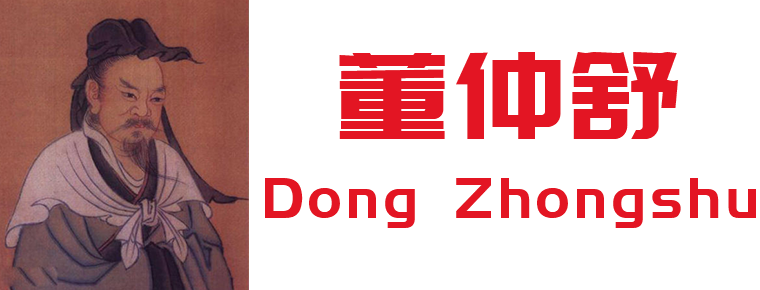
-
Sertar County
Sertar County is a county under the jurisdiction of Ganzi ....
Views: 218 Time 2018-10-12 -
Mao Zedongs former Residence
Comrade Mao Zedong's former residence is located in Shaoshan Village, Shaoshan Township, Shaoshan City, Hunan Province. It is located in the South and north of Shaoshan Village.
Views: 155 Time 2019-02-07 -
Liaocheng acrobatics
Liaocheng acrobatics is a traditional folk acrobatics art in Shandong Province. Liaocheng is one of the birthplaces of Chinese acrobatics. In the late Neolithic period, Liaocheng was the main area whe.
Views: 147 Time 2019-05-13 -
Jockey Club
The horse race held every June in the Tibetan calendar is a grand traditional festival in the northern Tibetan grassland, also known as the "Grassland Festival", which lasts from 5 to 15 day.
Views: 179 Time 2019-06-12 -
yangzhou storytelling
Yangzhou Dialect Commentary is a kind of folk art storytelling in Yangzhou dialect, which was developed in the early Qing Dynasty and popular in northern Jiangsu and Zhenjiang, Nanjing and Shanghai..
Views: 97 Time 2019-07-10 -
Traditional craftsmanship of moon cakes
Guo Dulin Jin-style moon cakes are Shanxi specialty. They are simple in shape, mellow in taste, crisp and refreshing, sweet but not greasy. They are famous for their crispness, delicacy, sweetness, me.
Views: 192 Time 2019-07-16 -
China Agricultural University
China Agricultural University (China Agricultural University), referred to as "China Agricultural University", is located in Beijing City By Ministry of Education of the People's Republic of.
Views: 184 Time 2019-12-21 -
Huanglongxi ancient town
According to the annals of Renshou County, the ancient name of Huanglong river is Chishui. According to the annals of Renshou County, Chishui River confluences with Jinjiang River. The water is brown and the river is clear..
Views: 181 Time 2020-11-06 -
Summary of Deyang
In 2018, Deyang's GDP reached 221.39 billion yuan, an increase of 9.0% over the previous year at comparable prices. The total economic output has exceeded 200 billion yuan, with per capita GDP of 62569 yuan. Among them, the added value of the primary industry.
Views: 336 Time 2020-12-14 -
Deyang local culture
On April 2, 2013, the Information Office of the people's Government of Deyang City, Sichuan Province announced the city logo of Deyang to the public. Among them, "the source of ancient Shu, the city of heavy loading" has become the main logo of Deyang City.
Views: 333 Time 2020-12-14 -
Historical evolution of Yibin
In the sixth year of Jianyuan (135 B.C.), Emperor Wu of Han Dynasty established Qianwei County, and at the beginning of the county administration, he (the west of Zunyi City, Guizhou Province) was established. In the first year of the first Yuan Dynasty of emperor Z.
Views: 375 Time 2020-12-18
